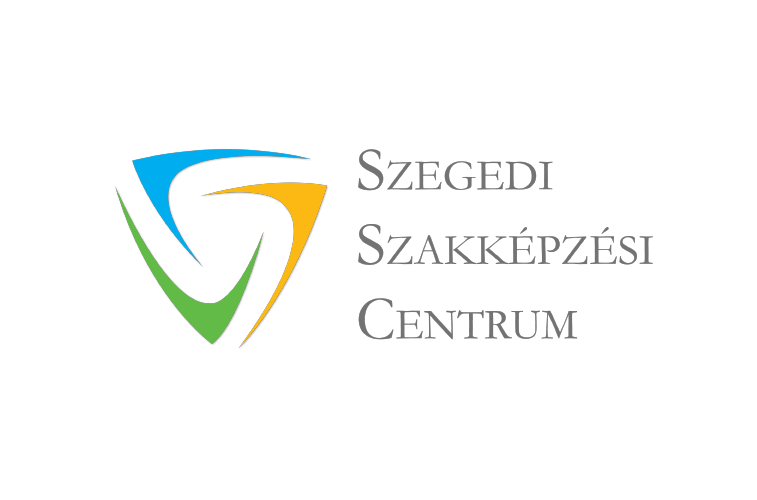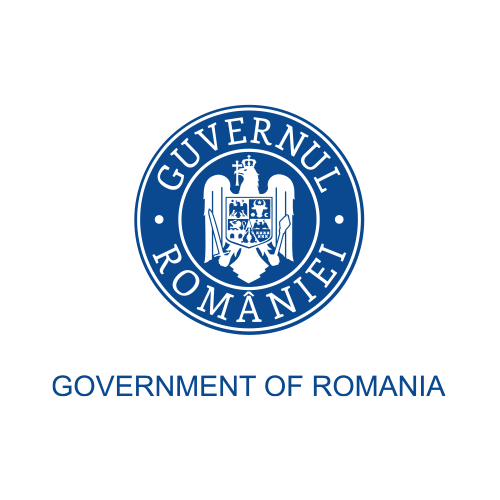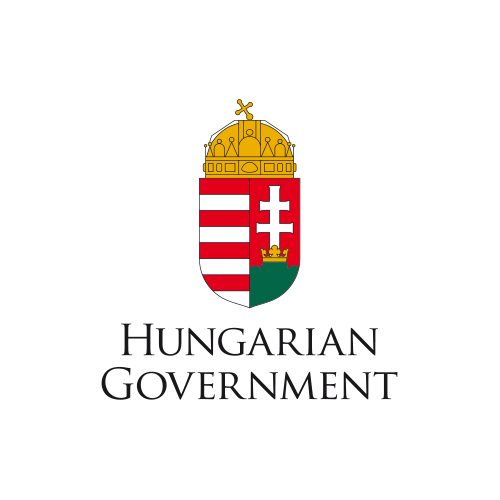
The Szeged Vocational Training Centre
Comparable in its scope to the other 44 vocational training centres around the country, the Szeged Vocational Training Centre, which was established on 1 July 2015, currently operates across 10 vocational training institutions and 20 sites in 2 settlements (Szeged and Mórahalom).
The aim of the centre is to promote a more efficient and coordinated operation of vocational training institutions and the development of a training structure that meets the needs of participants in the labour market.
The Szeged Vocational Training Centre is the most important vocational training centre in the Southern Great Plain with 7183 students and 926 teachers.
Most of the participating institutions have a long history. Well-established training programmes in schools reflect traditional values and, at the same time, are successfully adapted to the economic challenges of the present and the future.
The catchment area of the Szeged Vocational Training Centre far exceeds the borders of Csongrád-Csanád county. With the increase of its training profile, students come from other counties in the region such as Bács-Kiskun and Békés, but in the case of some specific professions, from other counties further afield, and even from across international borders. For suchstudents, the centre provides dormitory accommodation in several places courtesy of the Szeged City College, and the Szeged SZC János Tóth Mórahalom Vocational School and Garabonciás College also have their own dormitory.
The main task of the vocational training centre is to provide vocational education, technical vocational education, vocational school education, vocational high school education and education for children and pupils with special educational needs who can be taught together with other children and students, as well as imparting skills in the basic tasks required by dormitory life. These functions are enhanced by the Arany János Talent Development Programme, the Arany János Dormitory Programme and the Arany János Dormitory-Vocational High School Programme, as well as through non-public educational activities related to educational and teaching work. The vocational training centre also performs the basic task of primary school education in the primary school institutional unit taken over from the state institution maintenance centre. It plans and organizes the implementation of certain development programmes supported by financing from the European Union and other foreign and domestic funds.
Taking advantage of the opportunities provided by the legislation, a student can obtain several vocational qualifications within the walls of the same institution, to which the institutions also contribute with their wide range of training offers and their overlapping vocational training.
A primary aspect of enrollment is to increase the employability of students gaining a vocational qualification by developing the marketable knowledge and practical skills required by the labour market. To this end, the Centre takes into account relevant legislation, the needs of parents, students and colleagues, as well as business organizations and the labour market, and seeks to establish close cooperation between its partner institutions.
Young people who want to learn a profession can choose the vocational training that suits them from all professional groups. In addition, the centre is constantly striving to further expand its training offers in line with labour market demands.
Keeping pace with the development of technology, the institutions of the centre provide vocational training in accordance with economic needs and lifelong further training within the framework of vocational training, with a number of infrastructural investments, renewable equipment, and the use of modern techniques. In addition to budgetary resources, the background for the maintenance of a competitive standard and the developments in the field of training necessitated by the competitive situation between state and non-state institutions is provided through tenders won by the institutions.
Thanks to the dual system, in addition to the modern, well-equipped workshops of the schools, accredited practical training places across the region provide great help in the implementation of practical training. Students from the centre are currently acquiring the requisite practical and professional skills in hundreds of micro, small and medium-sized companies within the framework of a cooperation agreement and a student contract. Collaborating with larger businesses with a tradition of hands-on training has a long history, as schools have been working for decades to serve the labour market needs of local companies.
In profession-specific cases, the relations do not only cover the business sector, but the institutions also establish cooperation with local government, state-maintained institutions, offices and non-profit organizations. In developing such collaborations, the centre strives to create well-trained professionals in the implementation of internships.
Numerous forums and events provide a platform for building and nurturing relationships. Schools regularly organize briefings, joint professional forums, and companies hold professional days and presentations for students. Occasionally, the schools and businesses jointly implement domestic and international tenders and other projects in which companies take an active role in preparing for the competition and sponsoring the programmes.
An important link in the relationship with the entrepreneurial sphere is the Csongrád-Csanád County Chamber of Commerce and Industry. Students and vocational educators receive information about the latest materials, technologies and techniques from the best practitioners in the profession at regularly organized professional days.
Thanks to the quality of preparation, the institutions are represented in national professional study competitions by a variable number of students, but with good results every year. The joint work of teachers and students is greatly aided by the fact that the institutions have extensive international connections in Europe.
Through the in-service training of trainers abroad, the ERASMUS + programme and the partner institutions, students have the opportunity to practise their profession in foreign partner institutions and partner organizations, and to develop their professional knowledge at an international level.
Our mission is to give as many people as possible a marketable profession that will provide a secure livelihood.
Headquarters and training sectors:
Szeged SZC Csonka János Technical School
- Specialized machine and vehicle construction
- Police and civil service
Szeged SZC Déri Miksa Technical High School
- Mechanical engineering
- Specialized machine and vehicle construction
- Electronics and electrical engineering
Szeged SZC Gábor Dénes Technical School and Vocational High School
- Pedagogy
- Informatics and telecommunications
- Transport and forwarding
- Environment and water
- Sports
- Electronics and electrical engineering
Szeged SZC József Attila Primary School and Vocational School
- Social studies
- Mechanical engineering
- Agriculture and forestry
- Creative skills
- Wood and furniture industry
Szeged SZC Kőrösy József Economics School
- Economy and management
Szeged SZC Krúdy Gyula Vocational School
- Trade
- Tourism and hospitality
Szeged SZC Móravárosi Vocational School
- Electronics and electrical engineering
- Chemical industry
- Wood and furniture industry
- Beauty care
- Building services
- Building industry
- Mechanical engineering
- Specialized machine and vehicle construction
Szeged SZC János Tóth Mórahalom Vocational School and Garabonci College
- Pedagogy
- Informatics and telecommunications
- Tourism and hospitality
Szegedi SZC Vasvári Pál Economics and Informatics Technical School
- Informatics and telecommunications
- Trade
- Economy and management
Szeged SZC Vedres István Technical School
- Building industry
- Creative skills
ROHU Joint Employment-Driven Initiative (JEDI)
In Csongrád-Csanád county it is becoming increasingly difficult for businesses to find workers of the right quality and in sufficient numbers, thereby putting at risk the day-to-day operation and success of recent developments.
The lack of specialists is also a serious problem in the entrepreneurial and productive sectors, one of the main reasons for which is the lack of professional / technical / practical abilities and skills. However, in parallel with the growth of the economy and employment, there is a growing shortage of labour in certain sectors and occupations, which carries the risk that the shortage of skilled labour will be an obstacle to further economic growth.
Solving the problems of the labour market requires that the institutions, companies and organizations involved explore the problems and their real causes, and together develop a common plan to resolve them.
This requires the expansion of labour demand and the improvement of the quantity and quality of labour supply. Stimulating demand can be achieved primarily through economic policy and economic development. The availability of the right quantity and quality of workers can be achieved by developing vocational training institutions and strengthening career guidance activities. The current capacity of the vocational training centre workshops is insufficient to meet the increased demands of the labour market, and they are often equipped with outdated technology, which is no longer in use in moden companies. Thus, it is essential to modernize and expand these resources.
Project implementation
Businesses in the border area face the same problems. Within the framework of the project, and with reference to the labour market, we provide information to young people about employment opportunities abroad and practical information related to them. At the same time, both Hungarian and Romanian companies have the opportunity to introduce themselves in the regions on either side of the border, thus helping to balance the supply and demand of the labour market. Teacher and student workshops help to develop more uniform vocational training in the border region.
Activities
The project aims to provide tools for practical training in the following sectors to ensure that young people enter the labour market with practical knowledge tailored to the needs of businesses.
Events
- “Build your future!” is an event organized with career orientation in mind. It promotes a career path for young people towards the construction industry by presenting the relevant professions and skills in practice.
- Labour market workshop for graduate classes: in the framework of which we present students with employment opportunities at home and abroad. We provide information on the basic conditions of employment, the possibilities of possible discounts, tax rules, etc. Through this service, we form a bridge between education and employment. This activity concerns itself with employment opportunities both domestically and in Romania.
- The organization of two camps, during which Romanian students can try out and get acquainted with the opportunities provided by practical training in each profession.

